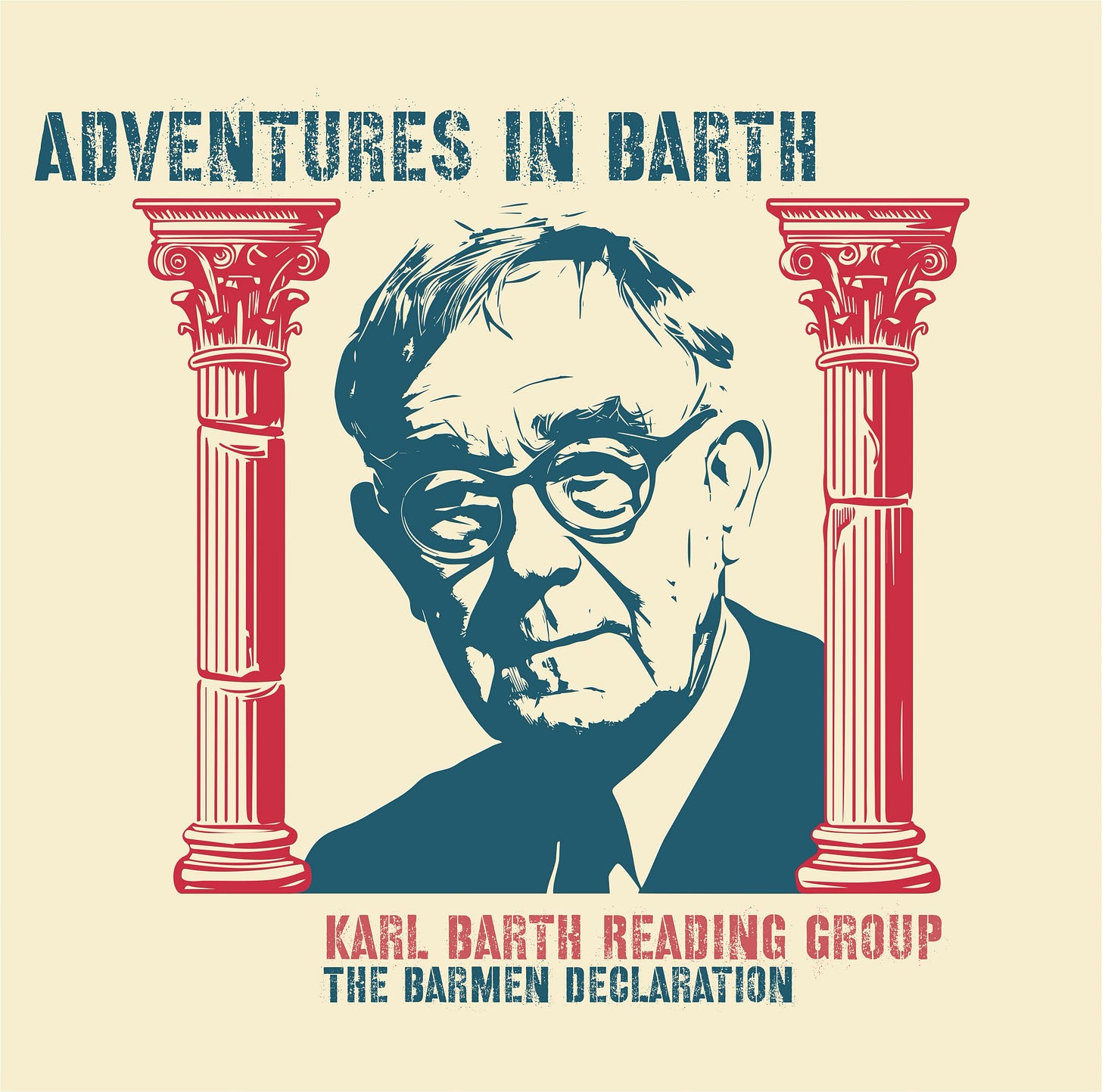Here is the recording from our discussion of the Barmen Declaration’s Fifth Thesis:
“Fear God. Honor the Emperor.”
— 1 Peter 2:17
Scripture tells us that by divine appointment the State, in this still unredeemed world in which also the Church is situated, has the task of maintaining justice and peace, so far as human discernment and human ability make this possible, by means of the threat and use of force. The Church acknowledges with gratitude and reverence toward God the benefit of this, his appointment. It draws attention to God’s Dominion [Reich], God’s commandment and justice, and with these the responsibility of those who rule and those who are ruled. It trusts and obeys the power of the Word, by which God upholds all things.
We reject the false doctrine that beyond its special commission the State should and could become the sole and total order of human life and so fulfill the vocation of the Church as well.
We reject the false doctrine that beyond its special commission the Church should and could take on the nature, tasks and dignity which belong to the State and thus become itself an organ of the State.
Show Notes
Summary
The conversation explores the intersection of Christian convictions and political beliefs, drawing from personal experiences and historical contexts. It delves into the Barman Declaration, scripture, and the role of the state in maintaining justice and peace. The discussion challenges the dichotomy of church versus state and the tendency to see the church as the sole agent of God's work in the world. The conversation delves into the relevance of Barth's thesis in the current context, highlighting the dangers of merging church and state, the impact of politics on faith, and the need for a proper understanding of the church's role. It also addresses the challenges of equating democracy with the will of God and the importance of discernment in power and influence.
Takeaways
Christian convictions can prompt a reappraisal of previously held political beliefs.
The role of the state in maintaining justice and peace is acknowledged, but not absolute.
The conversation challenges the dichotomy of church versus state and the tendency to see the church as the sole agent of God's work in the world. The relevance of Barth's thesis in the current context
The dangers of merging church and state
The impact of politics on faith
The challenges of equating democracy with the will of God
The importance of discernment in power and influence
Sound Bites
"The conversation challenges the dichotomy of church versus state and the tendency to see the church as the sole agent of God's work in the world."
"We reject the false doctrine that beyond its special commission, the state should and could become the sole and total order of human life."
"A lot of Christians equate American democracy with the direct will of God in a way that would make Barth very uncomfortable."






















Share this post